Polish Soldiers in Afghanistan
 A Polish soldier gives out toys and candy to a crowd of children one evening at his field patrol base in Ghazni province, Afghanistan. Polish Battle Group Company B's mission was to travel throughout the district of Andar and make connections and form friendships with the locals there.
A Polish soldier gives out toys and candy to a crowd of children one evening at his field patrol base in Ghazni province, Afghanistan. Polish Battle Group Company B's mission was to travel throughout the district of Andar and make connections and form friendships with the locals there. Afghan children and a Polish soldier assess each other while the Polish team leaders are talking with the village elders in Ghazni province, Afghanistan, June 23.
Afghan children and a Polish soldier assess each other while the Polish team leaders are talking with the village elders in Ghazni province, Afghanistan, June 23. Polish Maj. Thomas Stachera, commander of Polish Battle Group Company B, speaks with village elders in Ghazni province, Afghanistan, June 23. He is asking them about their village while his men hand out toys, candy, and school supplies to the local children.
Polish Maj. Thomas Stachera, commander of Polish Battle Group Company B, speaks with village elders in Ghazni province, Afghanistan, June 23. He is asking them about their village while his men hand out toys, candy, and school supplies to the local children. An Afghan soldier searches a vehicle while a Polish soldier stands nearby at a vehicle search checkpoint on a road in Andar Distict, Ghazni province, Afghanistan, June 24. Vehicles are searched to prevent weapons or explosives from being smuggled across the country.
An Afghan soldier searches a vehicle while a Polish soldier stands nearby at a vehicle search checkpoint on a road in Andar Distict, Ghazni province, Afghanistan, June 24. Vehicles are searched to prevent weapons or explosives from being smuggled across the country. A Polish soldier from 2nd platoon, Combat Team B, Polish Battle Group, fits shoes onto Afghan children from a Koochi family in the remote hills of Andar District in Ghazni province, Afghanistan, June 24. The Koochi people are a nomadic tribe who live in the mountains of Afghanistan.
A Polish soldier from 2nd platoon, Combat Team B, Polish Battle Group, fits shoes onto Afghan children from a Koochi family in the remote hills of Andar District in Ghazni province, Afghanistan, June 24. The Koochi people are a nomadic tribe who live in the mountains of Afghanistan. Polish Sgt. Jack Jedrzejowski, a squad leader in 2nd platoon, Company B of the Polish Battle Group, stands nearby a Polish Rosomak vehicle while approaching a remote village in Andar District June 26. His platoon arrived there to deliver humanitarian aid and assess the area.
Polish Sgt. Jack Jedrzejowski, a squad leader in 2nd platoon, Company B of the Polish Battle Group, stands nearby a Polish Rosomak vehicle while approaching a remote village in Andar District June 26. His platoon arrived there to deliver humanitarian aid and assess the area. Polish 1st Lt. Thomas Novak, platoon leader for 2nd Platoon, Company B, Polish Battle Group, has a discussion with a town elder while in a remote area of Andar District, Ghazni province, Afghanistan June 26. (U.S. Army photo by Spc. Micah E. Clare)
Polish 1st Lt. Thomas Novak, platoon leader for 2nd Platoon, Company B, Polish Battle Group, has a discussion with a town elder while in a remote area of Andar District, Ghazni province, Afghanistan June 26. (U.S. Army photo by Spc. Micah E. Clare)By Army Spc. Micah E. Clare
4th Brigade Combat Team, 82nd Airborne Division Public Affairs
ANDAR DISTRICT, Afghanistan — Listening to audio books in English, while washing dishes with his wife in Sulecin, Poland, was just one of the opportunities a Polish army officer used to brush up on his self-taught English language proficiency. At the time, Polish Army Maj. Thomas Stachera had no idea that learning English would serve him well in one of his most important military assignments: helping turn over the security of a war-torn Middle Eastern country back to its own people.
Stachera, commander of Combat Team B, Polish Battle Group, assigned to Ghazni province, Afghanistan, found his command of the English language extremely useful in communicating with Afghans, who speak an entirely different language. “There are not many Polish-speaking interpreters in Afghanistan,” he said. “In order to communicate to the locals and work effectively with our Afghan national army counterparts, it is important that I speak English well to my interpreter.”
There are only four interpreters in the entire country that can translate Polish into Pashto and Dari, the two most common Afghan languages, said Abdul Nasir, Stachera’s interpreter. The requirement that all Polish officers must be able to speak English aids in the Polish Battle Group’s mission in Afghanistan.
The Polish Battle Group, which officially took responsibility for the security of several areas in the eastern Afghan provinces of Ghazni and Paktika last month, is the first major Polish infantry unit to participate in international efforts to stabilize the country. It is also the first time Stachera and most of his men have served in Afghanistan.
“It is very different from what we thought it was going to be,” said Polish army 1st Lt. Thomas Novak, platoon leader of 2nd Platoon, Company B. “We trained very hard before we left, but we are finding ourselves adapting to many unforeseen circumstances every day.”
Novak explained that he and his men were trained to fight and take prisoners, but often find they’re doing the complete opposite: making friends and earning trust.
When he led his men into a small, isolated, yet green and terraced village nestled in the Andar district hills of Ghazni province during Operation Maiwand last month, they didn’t find the Taliban they were looking for, just an old man sleeping peacefully under an apricot tree.
After the man’s grandson roused him, he awoke to Novak’s friendly smile and an outstretched hand. “Salam alaikum,” Novak said rendering the traditional Islamic greeting.
Through his interpreter, Novak asked the man how he and the members of his village were doing and if they had been bothered by the Taliban, who, before fleeing the area at the start of Maiwand, had been threatening people not to cooperate with the international security assistance forces.
The old man kindly offered Novak and his men some of his ripe apricots, and proceeded to tell him about how glad the people in his village and surrounding areas were that their main roads were now cleared of roadside bombs. He also gave valuable information regarding rumors he had heard about the possible whereabouts of an escaped Taliban commander in a nearby province.
“This makes the work worth it,” Novak said after the meeting was over and he and his men had left. “I love talking with the locals, but when they return our courtesy with the information we need, it’s especially rewarding.”
The necessity for showing respect and cultural awareness for the residents of an area is something that some of the Polish soldiers with previous combat experience have brought with them to Afghanistan. It is something they teach to their comrades.
“Even though we are the ones carrying the guns, it’s very important to show (locals) that we are their friends, not enemies,” said Polish Sgt. Jack Jedrzejowski, a squad leader in 2nd Platoon, Company B, who has combat experience in both Iraq and Lebanon. “If we don’t show respect to their culture, religion and customs, they won’t have any reason to assist us.”
Of equal importance, showing respect and friendliness to the locals, is working well with the Polish soldier’s newfound allies, the Afghan national army soldiers assigned to them.
“We didn’t expect to be working in such a close partnership with them,” said Novak. “But we find them to be the key to putting the people we visit at ease.”
While an interpreter can’t be everywhere at once, the Poles and Afghans must sometimes be able to understand each other without any words at all, such as situations where vehicles at a traffic control checkpoint need to be searched.
“They point to the area on a truck, and we ask the driver to open it up for searching,” said Mohib-Ullah, an Afghan soldier from the Afghan 203rd Thunder Corps unit attached to 2nd Platoon. “We let the driver know that it’s just a procedure meant for everyone’s safety. We’ve really started working together well with the Polish, and we’re always learning new ways to understand each other.”
Even when the soldiers are taking breaks for lunch in the hot midday sun or setting up camp for the night in a circle of Polish armored personnel carriers, Humvees, and Afghan trucks, the two teams still find ways to interact.
“It is very enjoyable to sit around the campfire at night with them,” said Ullah. “We sit around sipping tea and we cook for each other. We all laugh at each other’s jokes and mannerisms, even though we can’t understand what the other is saying. It doesn’t matter though. We’re all soldiers. We understand that.”
The need for communication has also prompted the Polish to pick up some of the native language, an opportunity some of them are very happy with.“I’ve been able to learn quite a few Pashto phrases,” said Novak. “It’s gotten to the point where I can piece together what some of these village elders are saying to me. When my interpreter tells me what they actually said, more and more I find that I was very close to it.”
From the typically excited speaking style of the elderly men answering questions during key leader engagements, to the happy, laughing children as they are given new shoes, toys or school items on humanitarian aid drops by the Polish and Afghan soldiers, the two Andar-based platoons find building relationships with the residents an everyday thing, which is quite different from what they were expecting to do here.
But this is a good thing, said Stachera.
“The people here are on our side,” he explained. “It is the most encouraging thing about being here in Afghanistan. My biggest concern here is for the safety of my men, but the more we travel this country, I can see that we are really helping. What we are doing here is really working, and the people are earnestly cooperating with us. They see the right thing to do is to work towards unity, and to show the Taliban that they have no place here.”
***************************************
If any of you (that I know) are interested in writing to the members of the Polish battle group, please email me and I will send you their address! They need to know that we support them, too. This group has served in Iraq and Kosovo, prior to their service in Afghanistan.
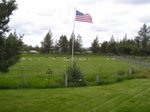


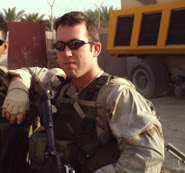










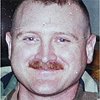


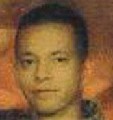









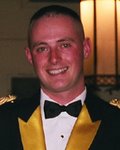






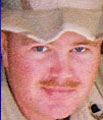
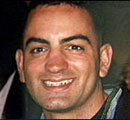





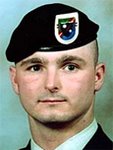




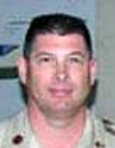
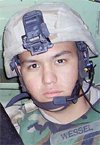
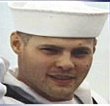

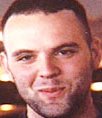



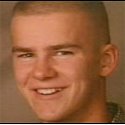
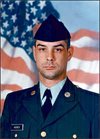


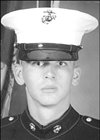
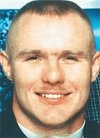
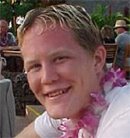

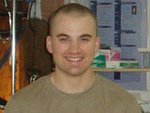




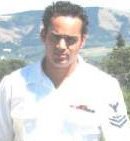

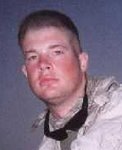
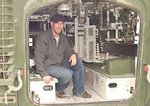
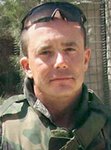

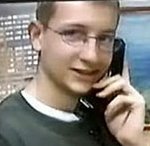

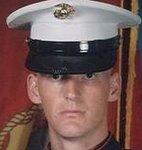
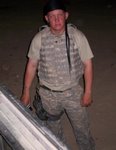
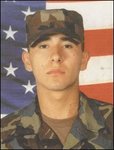
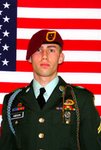

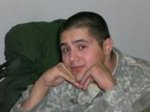
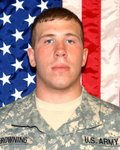





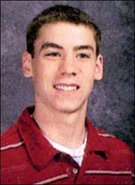
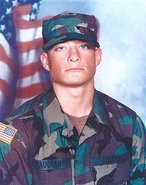
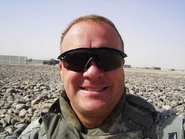
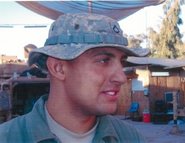
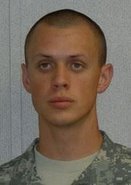
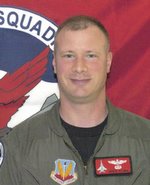
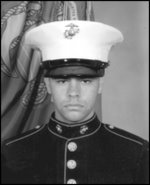
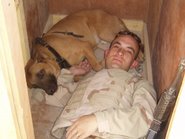
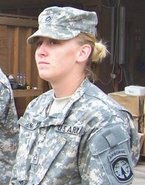

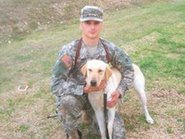

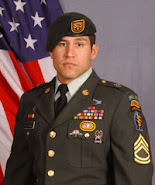

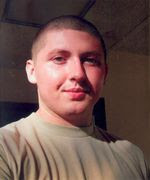



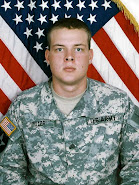
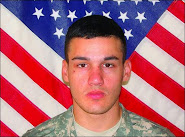



No comments:
Post a Comment